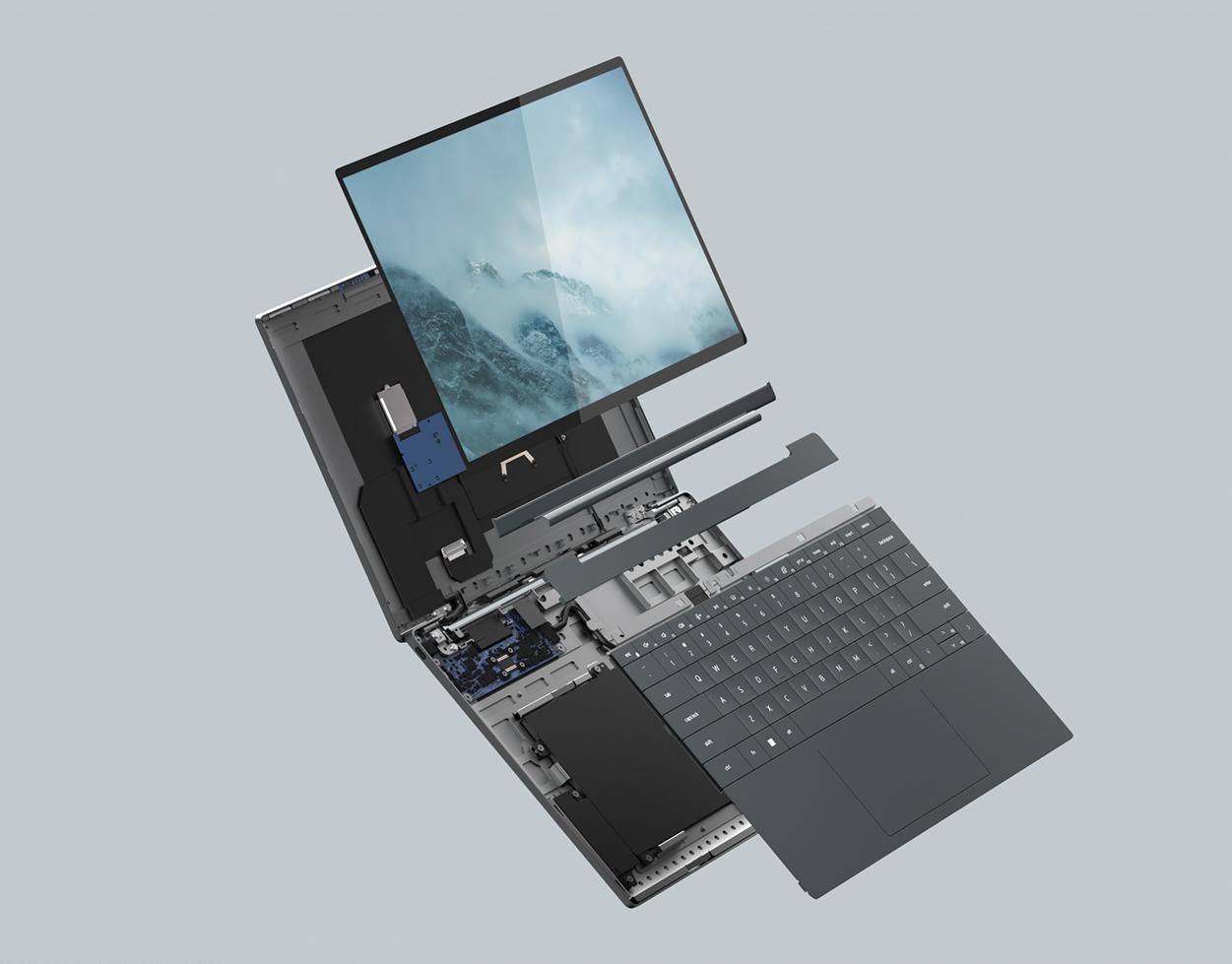Dell’s Bold Idea: A Laptop You Can Actually Repair
It’s a lagging response to the “right to repair” movement
In December 2021, just before CES, the world’s leading tech event, Dell introduced Concept Luna, a reimagining of the laptop PC that focuses on repairability.
Modern laptops are notoriously difficult (and sometimes impossible) to repair, a problem Luna’s designers address by reducing the number of screws to four and avoiding permanent adhesives. Instead, many components lock into place. Dell has set itself the goal of reusing or recycling one equivalent product for every product it sells. Luna, a laptop that can be disassembled and repurposed, could help achieve that goal.
Repairability dovetails with the larger goal of sustainability. Luna looks like Dell’s latest XPS 13, but clever tweaks have slimmed its carbon footprint. It’s designed for on-demand production to reduce waste from unsold inventory. The motherboard, among the most resource-intensive components, is shaved to a quarter of its typical size. The stamped aluminum is designed to minimize scrap and may be recycled at the laptop’s end of life.
Dell isn’t alone in its focus on sustainability. LG announced at CES 2022 that its new OLED TVs will use more recyclable materials and shave down packaging waste, and Lenovo introduced a Yoga laptop partially constructed from recycled plastics. These steps follow a trend set by Apple, which uses recycled aluminum in several devices including the MacBook Air and iPad.
These efforts strike a chord with the public. Among people in advanced economies, 72 percent are concerned that global climate change will harm them, according to a Pew survey. Only 46 percent had confidence in efforts to reduce the effects of global climate change. And climate change isn’t the only problem worth worrying about. Consumer electronics can cause deadly pollution by degrading into hazardous materials (including lead, mercury, and arsenic) when left in landfills.
Modern electronics often remain relevant for at least five years; routers, displays, and high-end computers can be useful for a decade or more.
Sustainable, repairable devices may help consumers feel they’re contributing less to these long-term problems, but there’s also an immediate advantage: lifespan. Modern electronics often remain relevant for at least five years; routers, displays, and high-end computers can be useful for a decade or more.
Unfortunately, a device’s life is often cut short by a problem that should be (but isn’t) repairable, such as an aging battery or broken charging port. Luna would let users replace or upgrade components after purchasing, prolonging the life of the laptop. A stuck key or bulging battery would no longer be a death sentence.
Framework, a startup that released its first laptop in 2021, is already putting this idea into practice. The company’s namesake laptop is designed for easy access to its internal hardware. Owners can replace the hard drive, battery, or Wi-Fi adapter, and expansion cards let owners replace or swap ports. Framework’s laptop is not as compact or modular as Dell’s concept, but it has the key advantage that you can buy it right now.
Apple, too, is preparing a Self Service Repair program that will sell parts for iPhones, iPads, and Macs directly to consumers. Owners will be able to fix their devices with new, official repair manuals. In the case of iPhone and iPad, these will be the first official repair manuals ever released.
The cynic in me must point out that these steps, though welcome, are insignificant next to the deep, global change needed to stop the progress of climate change. Repairing the screen in an iPhone will not halt a heat dome.
Still, progress should not be overlooked. Consumer electronics won’t change overnight, but that doesn’t mean change is impossible. It’s important that Dell, and other companies in consumer electronics, know we want sustainable materials. We want modular design. We want devices we can fix and continue using for a decade or more.
These changes, small by themselves, are each just one step in the marathon effort to curb climate change, but they take us in the right direction, all the same.
This article appears in the March 2022 print issue as “Dell’s Proposed Laptop is Fit to be Fixed.”
Matthew S. Smith is a freelance consumer-tech journalist. An avid gamer, he is a former staff editor at Digital Trends and is particularly fond of wearables, e-bikes, all things smartphone, and CES, which he has attended every year since 2009.
